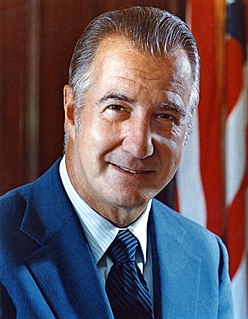A Quote by J. I. Packer
If I were the devil I should broadcast doubts about the truths and relevance and good sense and straightforwardness of the Bible ... At all costs I should want to keep them from using their minds in a disciplined way to get the measure of its message.
Related Quotes
Any good broadcast, not just an Olympic broadcast, should have texture to it. It should have information, should have some history, should have something that's offbeat, quirky, humorous, and where called for it, should have journalism, and judiciously it should also have commentary. That's my ideal.
Biblical social scientists have an advantage because they know truths about human nature. Those who dismiss the Bible and create surveys that don't measure crucial factors are the ones who have closed minds. Sometimes the Bible gives us clear answers and sometimes it doesn't, but it always helps us to ask the right questions.
I hadn't studied theatre and I hadn't studied actor training or anything, but I did have a sense of movement and composition, and what the final product would be like, but luckily I had friends who were good actors, who would help me get them, who would get themselves to the place where a good director should get them to build characters.
We should be able to have a conversation about immigration; we should be able to have a conversation about what skills we want to have in the U.K. and whether we need to go out of the U.K. in order to get them to boost our economy, and I don't think we should have a situation where we can't talk about it.
I want here to make three suggestions: first, that the doubts the ordinary man feels about religion are justified, and need not be stifled or concealed; second, that there is no ground for the view that Christianity is the only alternative to communism, or that there can be no sound character training that is not based on religion; and, third, I want to make some practical suggestions to the parents who are not believers, on what they should tell the children about God, and what sort of moral training they should give them.
Such debates [about the nature of Scripture], in my view, distract attention from the real point of what the Bible is there for. Squabbling over particular definitions of the qualities of the Bible is like a married couple squabbling over which of them loves the children more, when they should be getting on with bringing them up and setting them a good example. The Bible is there to enable God's people to be equipped to do God's work in God's world, not to give them an excuse to sit back smugly, knowing they possess all God's truth.
The children's lessons should provide material for their mental growth, should exercise the several powers of their minds, should furnish them with fruitful ideas, and should afford them knowledge, really valuable for its own sake, accurate, and interesting, of the kind that the child may recall as a man with profit and pleasure.
I realized that the ignorance was profound. I don't mean that in a pejorative sense, it's just that people didn't know what the Shari'a was, as such. They knew that it was something good. I should say perhaps that the Shari'a, etymologically in Arabic, means a desert path to water. It means a path towards salvation, in the seventh-century context, to the desert people. If you have a path to water, that's the path you want to take to get you where you want to get to; where you should get to. And that much was clear but beyond that people didn't know what the rules were.






































